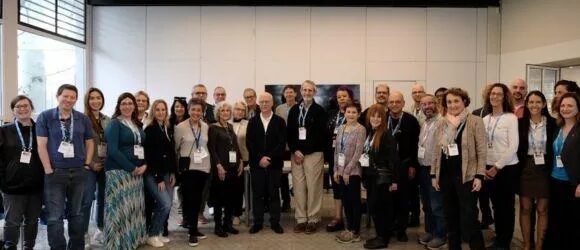Tel Aviv University hosts a delegation from UCLA.
The Lowy International School hosted the UCLA delegation at Tel Aviv University on February 20 as part of their solidarity trip to Israel. In a substantive round-table discussion, 27 UCLA faculty members spanning diverse research disciplines engaged in insightful conversations surrounding the events of October 7, the ongoing geopolitical situation, and the actions Tel Aviv University has been taking.
TAU President Prof Ariel Porat described the wide range of initiatives launched by TAU to support its student reservists, agricultural communities in the south of Israel, and displaced residents of the south and the north.
“We opened the academic semester with a heavy heart as 2000 of our students are still serving in the reserves. To support them, we’ve started a special program that includes group and individual tutoring sessions to help the students who miss classes.”—Prof Ariel Porat, TAU President
Prof Porat also underscored the paramount importance of academic freedom, cautioning against the potential hazards of political intervention on university campuses.
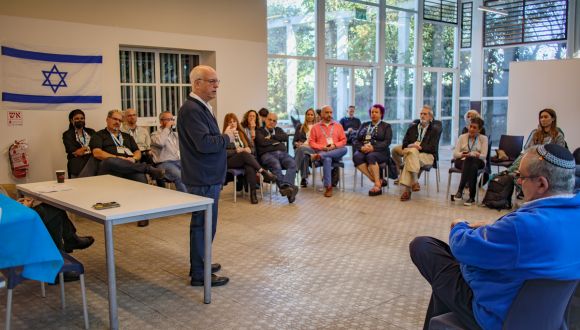
Prof Neta Ziv, Vice President for Equity, Diversity, and Community at TAU, spoke about creating a shared space for everybody on campus considering that universities are places where many members of Israeli society meet for the first time, having grown up in their separate communities.
“Any tension in the country is immediately reflected on campus. On the one hand, we want our students to be active citizens and express their views and we view the campus as a democratic sphere, but we have to deal with the boundaries,” — Prof Neta Ziv.
Currently, TAU’s student body is highly diverse, encompassing 16% Arab students, along with significant numbers of Druze students, Christian students of Ethiopian descent, and members of the LGBTQ+ community. The university is committed to ensuring that the campus remains a safe and welcoming space for everyone.
TAU’s Response to Post-October 7 Realities
After October 7, new challenges emerged, including the delineation of free speech boundaries and the need to ensure that there are no incidents on campus amid existing tensions between Jews and Arabs once classes resume.
Prof Ziv affirmed the university’s steadfast commitment to safety and inclusion:
“Everyone is welcome here; the campus is a place where everyone belongs.”
According to Ziv, the university was inundated with complaints after October 7, with students allegedly supporting terrorism or inciting against Arabs on social media. Emphasizing the imminent threat to free speech during emergency times, she clarified that, out of over 100 cases brought before the Office for Diversity, only three resulted in disciplinary hearings, leading to the expulsion of students who actively supported the massacre.
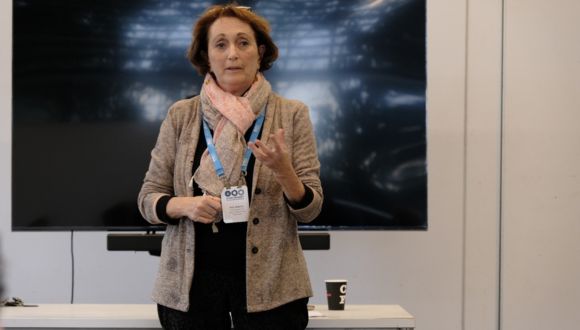
Prof Neta Ziv, Vice President for Equity, Diversity, and Community at TAU
Prior to opening the semester, faculty members received training on how to talk to students about what had happened, what to say and what not to say, how to contain the discourse and controversy in class.
“What do we do to start the school year in a way that would acknowledge that many of our students have gone through trauma, and many of our Arab students are afraid of being targeted?”
As Prof Ziv explained, a lot of of time and resources went into preparing for the school year. Since the start of the semester on December 31, the situation on campus has been quiet despite a small number of isolated incidents because the students really want to have a place where they can study and leave everything else outside the university gate.
Exploring Political and Gender Dimensions of the War
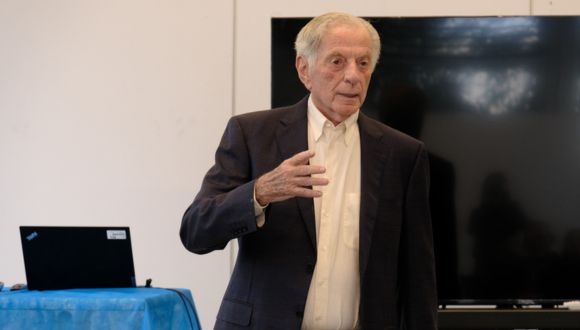
Prof Itamar Rabinovitch Professor Emeritus of Middle Eastern History at Tel Aviv University (Dayan Center for Middle Eastern and African Studies,); Israel’s former ambassador to the United States and former Chief Negotiator with Syria in the mid-1990s, and the former President of Tel Aviv University (1999-2007)
The expert panel, moderated by Prof Itzhak Friend, featured a talk by Prof Itamar Rabinovitch, former Israel’s Ambassador to the US, addressing the political ramifications of the ongoing conflict and President Biden’s proposed two-state solution. Prof. Daphna Hacker, a distinguished scholar in TAU’s Law and Gender Studies and an Independent Expert to the UN Committee on the Elimination of Discrimination Against Women, provided a compelling analysis of the gender dimensions within the ongoing hostilities.
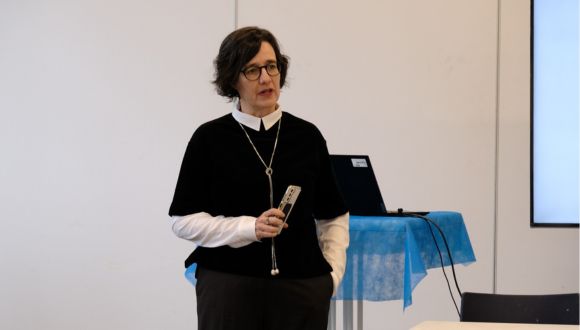
Prof. Daphna Hacker, Full Professor at the Law Faculty and the TAU Women and Gender Studies Program and an Independent Expert to the UN Committee on the Elimination of Discrimination Against Women
UCLA Delegation’s Perspective on the Visit
Members of the UCLA delegation discussed the challenges faced by Jews within academic institutions and efforts to counteract instances of antisemitism. Reflecting on the visit, Prof Mark Klingman from the UCLA School of Music emphasized the significance of hearing firsthand experiences from Israelis and being at Israeli academic institutions to understand responses and people’s well-being.
“It’s very different than hearing it on the news. Hearing everyone’s experiences on October 7, what they did and how it impacted their families has reminded me of 9/11.” —Prof Mark Klingman from the UCLA School of Music
Prof Klingman also highlighted the determination and unity he observed among people in Israel during the visit.
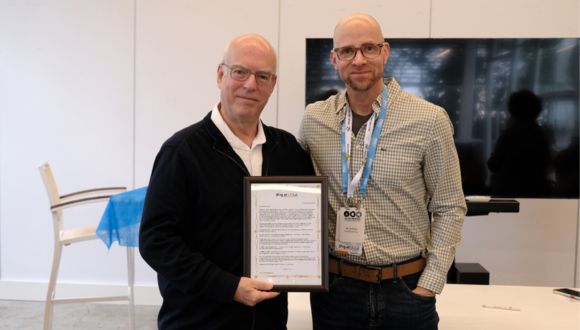
Prof Ariel Porat, TAU President, and Nir N. Hoftman, UCLA
Another delegation member, Dr. Tabia Lee, Director of Coalition for Empowered Education and Member of Free Black Thought, expressed her happiness in learning about Israel’s rich history of diversity and inclusion.
“I’m very excited to hear the perspectives of professors and to hear them actively engage with questions. Seeing people being able to challenge each other, to adjust positions and perspectives is very inspiring, and I’m going to take that back home as a model,” said Lee.
She further stated that one of the primary purposes of the visit was to meet local communities, speak to families, witness the actual sights, and express solidarity with the people of Israel during this time.
“The resilience, the ability to still be open to dialog, compassion and wisdom that is here in the people is something that I admire so much. If we can take it and emulate it where we are, our society will improve.” — Dr. Tabia Lee, Director of Coalition for Empowered Education and Member of Free Black Thought
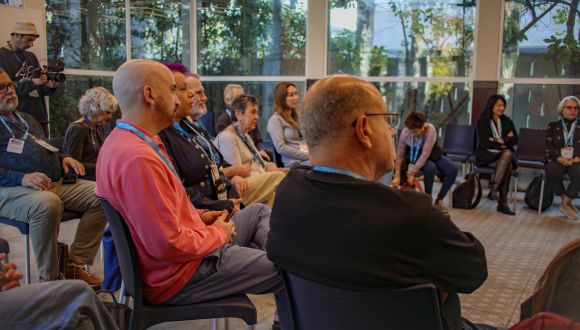
During the concluding discussion, the UCLA delegation expressed their commitment to building relationships with TAU faculty underscoring the collective pursuit of fostering meaningful collaborations on faculty and student level.
